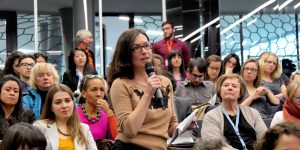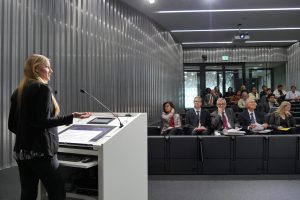
Multiple professors, researchers and students work on SDG 11 at the Graduate Institute. Their work includes academic and policy-oriented publications, events and research projects. We also offer Executive Master degrees in Environmental Governance, and Development Policies and Practices, and an academic Master degree in Development Studies.


Security and the Pandemic: Global Perspectives | Launch Event

Executive Master in Development Policies and Practices (DPP)

Consumer Myopia, Imperfect Competition and the Energy Efficiency Gap: Evidence from the UK Refrigerator Market

The Emerging World: alternatives that can change everything

From Science to Practice: Strengthening Research Uptake to Achieve the SDGs

Accelerating achievement of the sustainable development goals

Garbage Is Good to Think With: The Interplay of Civic Activism and Judicial Intervention in Shaping Bangalore’s Solid Waste Management Policies

Gangs Project Public Launch

Sustainable Food Consumption, Urban Waste Management and Civic Activism

Understanding the Tipping Point of Urban Conflicts: Violence, Cities, and Poverty Reduction in the Developing World

COVID-19 and planetary urbanisation
Discover more SDGs
Goal 11 aims to improve urban planning and management which is needed to make the world’s urban spaces more inclusive, safe, resilient and sustainable. The UN Sustainable Development Knowledge Platform stresses that “rapid urbanization has brought enormous challenges, including growing numbers of slum dwellers, increased air pollution, inadequate basic services and infrastructure, and unplanned urban sprawl, which also make cities more vulnerable to disasters”. Read more about Goal 11.